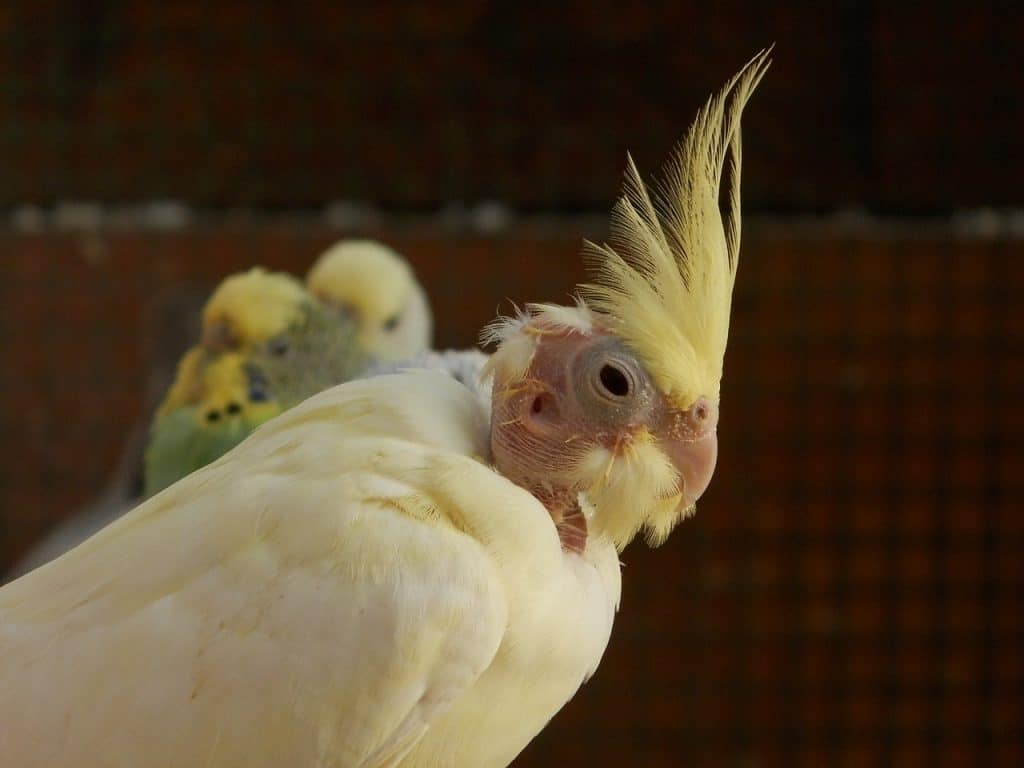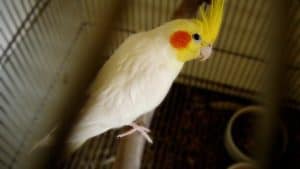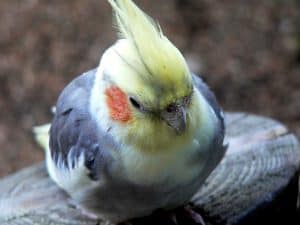Being a pet bird owner is great, isn’t it? They chirp, they bring life into your house. But what happens when your pet birds seem stressed? Especially when you notice your cockatiel showing signs of fear or overt stress. You might notice repetitive behaviors, such as excessive preening, feather picking, or even self-mutilation, and, understandably, you may become deeply concerned about your feathered friend. Even the bravest bird owners are often unsure of how to calm a stressed cockatiel. Well, don’t sweat it! This guide is your first stop in understanding and soothing your anxious cockatiel.
Stress in birds, particularly pet parrots like cockatiels, can be triggered by a variety of factors. You might have new pets in the house, loud noises might be unsettling your bird, or they might just be feeling lonely. They could also be reacting adversely to a poor diet, lack of mental stimulation, or even the presence of unfamiliar wild animals outside their window. You’ll need to keep an eye on their cage conditions and their interaction with other birds and family members in the same room.
Identifying your bird’s stress is the first step to tackling it. Signs of stress in cockatiels often manifest through changes in their behaviors and appearance. Is your bird experiencing loss of appetite? Are stress bars – small lines noticeable along the width of your birds’ feathers – visibly present? Perhaps your cockatiel is showing stereotypical behaviors, like head swinging or toe tapping, commonly associated with stress. Recognizing these red flags can be arduous; it really helps if you are familiar with your pet’s health history as well as the norms for their species.
Spotting Signs of Stress in Your Cockatiel
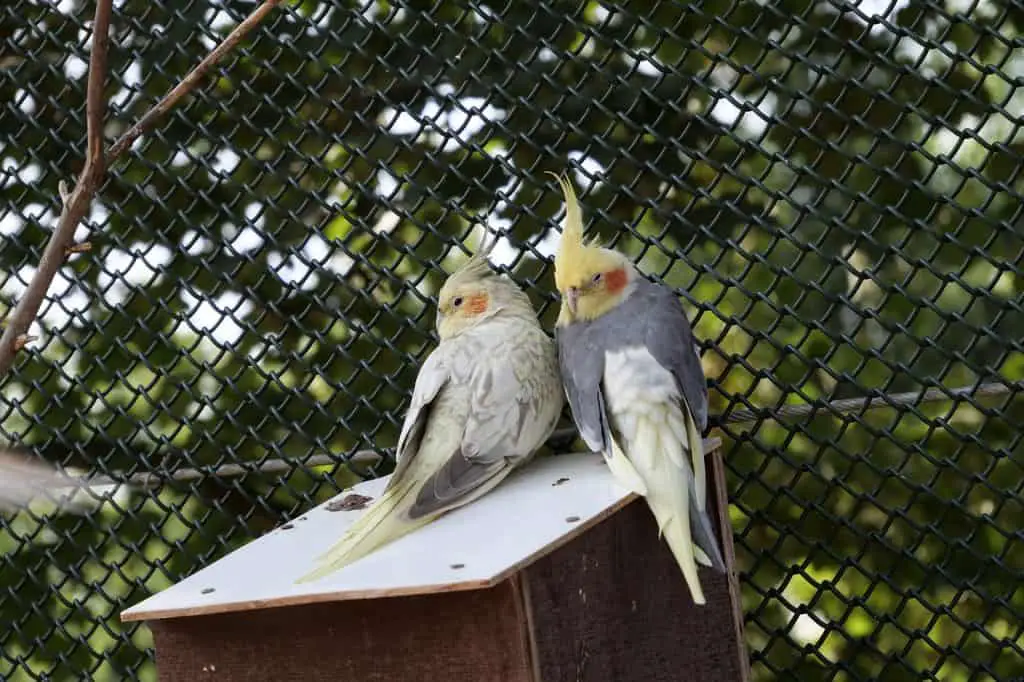
Understanding how to calm a stressed cockatiel starts with recognizing the telltale signs of stress. This feathered friend isn’t like most pets. Birds use non-verbal cues to communicate, so it’s crucial to recognize if your cockatiel is exhibiting symptoms of anxiety or stress.
Feather picking is often a red flag that your bird may be feeling anxious. If your cockatiel starts to harm themselves or their feathers appear tattered or plucked, it’s often due to stress.
Another telltale sign, especially in pet parrots, is the appearance of stress bars—small lines that run across their feathers—indicating chronic stress. Be extra vigilant, as these signs can often be overlooked by bird owners.
Changes in behavior are also clear signs of stress. Repetitive behaviors, like head swinging or toe tapping, are stereotypical behaviors observed in many parrots under stress. If your pet’s health history does not have a record of these actions, it’s likely the behavior is stress-induced.
Loud noises can be a cause of stress in birds. Cockatiels are naturally alert to protect themselves from unfamiliar wild animals, and this vigilance extends to the noises in your house.
Here’s where your job to provide mental stimulation comes in. Birds, especially cockatoos, need a mix of quiet time and entertaining activities. Too much or too little of either can lead to a chronically stressed bird.
Giving your cockatiel plenty of out-of-cage time can help mitigate stress-induced behaviors. Puzzle toys and foraging toys can offer interaction and mental stimulation, countering monotony and boredom. Keep the bird’s cage in a room where the bird can see family members without being exposed to loud noises.
- Perfect intelligence design toys for your bird thinking development.
- By observing your parrot you will quickly see that birds really prefer "working" to obtain their food.
- Place the bird in a cage favorite food or toy blocks, allow the birds to eat or take out their own brains how to play.
- The toy provides a Challenging&Fun Way for birds to acquire nuts,fruit or other bigger treats from holes in different shape,Which keeps your bird busy with fun for hours.
- This is intelligence improvement chewing toy. It need some thinking when the bird take out the food from the grid which is not in shape,and keep your parrot busy and fun for hours.
Remember, different birds exhibit different responses to stress. Some might lose their appetite while others resort to self-mutilation, especially smaller birds. As a responsible bird owner, it’s your duty to recognize these signs and take the necessary steps to reduce stress levels in your bird.
Finally, don’t brush off signs of stress as “just a phase”. Chronic stress in birds can lead to poor diet, loss of appetite, and even harmful behavioral changes. It’s crucial for their well-being to catch the signs early. If you think your bird may be experiencing stress, don’t wait. Contact your vet immediately. A professional will help you work thru health-related questions regarding your feathered pet.
Monitoring your bird’s behaviors will assist in maintaining a healthy and calm bird. Remember, their health and mental stimulation adds to the overall wellbeing; providing them with a clean environment, proper nutrition, and the right toys will ensure your feathered friend remains a calm pet for years to come.
- Package includes 2 pieces of different bird chewing toys,Natural Cuttlebone grass Loofah Sponge Dough Twist and Lava Block Beak Grinding Stone ,Provides natural calcium and minerals
- Parrot chewing toy made of porous mineral stone and derived from natural cuttlefish, rich of calcium for pet's health while grinding bird's beak, Safe and healthy to birds.easier to hang in multiple places, good decoration for parrot's cage
- Colorful beads between lava stones and the bell on the bottom attract parrot's attention, reduce loneliness, good for parrot's psychological wellness
- Parrot chew toys, cage climbing toys, bell parrot toys, bright color, shapes, for likes to gnaw bite parrots enjoy the release Mozui desire.
- We are committed to creating the best customer service of the bird chewing toys. If you are unsatisfied, contact us. You will receive a 100% refund and forever Promise.
Diving into Cockatiel Behavior and Stress
Understanding your pet bird’s behavior is an important step in creating a comfortable environment for them. Particularly for cockatiels, recognizing the signs of stress can be key to maintaining their overall well-being. Just like humans, cockatiels can experience stress when their environment or routine changes. This could be due to factors like loud noises, the introduction of new pets to the house, or even exposure to unfamiliar wild animals. And just as it’s crucial for us to remain calm in times of stress, it’s equally important to understand how to calm a stressed cockatiel.
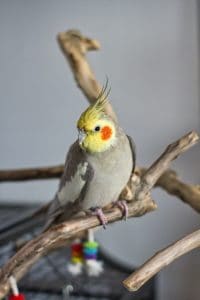
Identifying signs of stress can help bird owners promptly mitigate potential threats to their bird’s health. Some common stress indicators in pet parrots like cockatiels include feather picking, loss of appetite, and repetitive behaviors such as head swinging or toe tapping. Many pet birds exhibit these behaviors when they’re feeling anxious; others may even display stress bars—small lines that appear across a bird’s feathers—when they’re chronically stressed.
Other birds may exhibit more severe signs of chronic stress, such as self-mutilation. If you start noticing these behaviors, consult a vet immediately. Always keep an eye out for the health-related questions regarding your pet’s health history during regular consults.
Stressed birds may often benefit from changes in their cage environment, diet, and care regimen. Make sure your bird’s cage is in a quiet area of the house where they aren’t constantly surrounded by loud noises or unfamiliar faces. Also, spending out of cage time with your feathered friend can help them feel less isolated.
To further improve your bird’s mental stimulation and reduce stress, consider adding puzzle or foraging toys to their cage. Not only will these toys provide stimulation, they’ll also help reduce boredom—one of the key reasons for stress in birds, especially cockatoos. It’s essential for bird owners to ensure their parrots get a healthy amount of mental stimulation to remain calm and happy.
Lastly, don’t forget the importance of a proper diet to combat stress. A poor diet can cause nutritional deficiencies, creating physical stress that manifests in behavioral changes. Feeding your cockatiel a diverse diet rich in fruits, vegetables, and high-quality bird food can help maintain their overall wellbeing and keep them from feeling stressed.
Remember, every bird is unique—what works to calm one might not work for another. As a bird owner, it’s your responsibility to understand your pet’s individual needs and ensure that they’re met. Keeping your bird calm and stress-free should always be a priority. After all, you want your feathered friend to lead a happy, healthy life.
Final Thoughts: How to Calm a Stressed Cockatiel
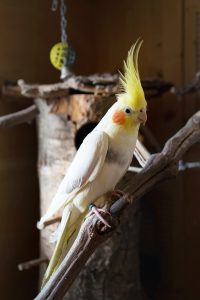
Responsible bird ownership necessitates understanding and recognizing signs of stress in your feathered friend, particularly in cockatiels. Factors like loud noises, new pets, or changes in their environment can trigger stress for these sensitive animals. Visible signs of stress may include feather picking, stress bars across feathers, and behavioral changes like head swinging.
Implementing measures such as providing quiet time and stimulating activities, ensuring proper diet, and allowing ample out-of-cage time can help reduce stress in your bird. If stress-related symptoms persist, professional veterinary help should be sought promptly. Remember, every bird is unique and needs individual care – monitoring their behaviors and catering for their individual needs will ensure their wellbeing and ensure they remain calm and happy companions.
